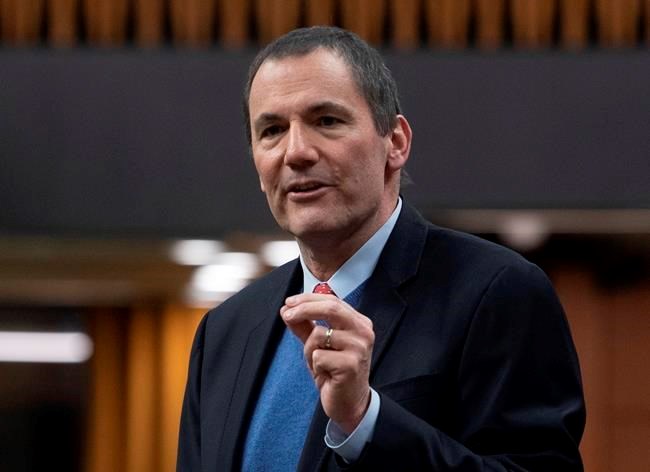OTTAWA — The COVID-19 pandemic is similar to an election campaign in the way it is providing opportunities for malicious actors to spread misinformation, say Canada's partners in a new effort to ensure democratic integrity.
Privy Council President Dominic LeBlanc announced Tuesday Canada is teaming up with tech giant Microsoft and the Alliance for Securing Democracy on countering election meddling as part of the Paris Call for Trust and Security in Cyberspace.
The government says the surge of dubious information and cyberthreats emerging in the context of COVID-19 highlights the need to act.
The Paris Call flowed from the Internet Governance Forum held at UNESCO and the Paris Peace Forum in November 2018 and encourages international collaboration to address new cyberspace threats to citizens and institutions.
Canada will work with Microsoft and the U.S.-based alliance on one of the Paris Call's nine fundamental principles that aims to "strengthen our capacity to prevent malign interference by foreign actors aimed at undermining electoral processes through malicious cyberactivities."
During an online discussion after the announcement, Microsoft president Brad Smith said the company detected fewer state-sponsored online attacks at the beginning of the pandemic, followed by an increase in the last six weeks.
"We're seeing a resurgence, in part, playing on people's fears and uncertainties around COVID-19," he said. "We're seeing a rise in misinformation and disinformation around COVID-19 and its causes and its effects."
The pandemic has spawned an infodemic — the proliferation of fake information about the novel coronavirus, said alliance director Laura Rosenberger.
People have questions about COVID-19 and they're searching for information but sometimes governments and other responsible agencies don't have immediate answers, she said.
"It provides a great opportunity for those malicious actors to come in and just fill the information space with conspiracy theories, with false information, with things that are aimed at manipulating people," she said.
"That really polluted information environment actually makes it easier for malicious actors to come in and try to manipulate conversation aimed at other parts of society, other democratic institutions."
The problem of election interference is not going away and, if anything, more countries are acting with increasing sophistication, Smith said.
"Our understanding of the problem has gotten better," he said. "Our defences are stronger as a result."
But as defences get better, the digital attacks also become more elaborate.
"We're seeing more types of attacks, we're seeing a greater range of targets. And there are some days when it even feels like there are one or two more governments getting in on this," Smith said.
"So unfortunately the challenge in many ways is as great or greater than it was, even though I think we are in a better position to defend against this."
Rosenberger said she is not naive enough to think the project on electoral integrity can solve everything.
"But I do think that building these kinds of collaborative fora, where we can really sit down as equal partners at a table and be able to work through different kinds of approaches and solutions is a really important start."
This report by The Canadian Press was first published May 26, 2020.
—Follow @JimBronskill on Twitter
Jim Bronskill , The Canadian Press



